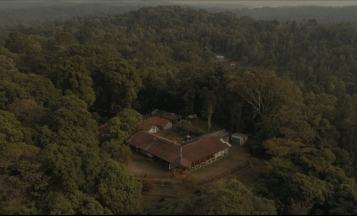How ethical farming practices can help battle climate change and protect biodiversity and water
How ethical farming practices can help battle climate change and protect biodiversity and water
Reading Time 3 minutes

Agriculture both contributes to and may be a part of the answer to one of the greatest concerns to our world today: climate change. By lowering greenhouse gas emissions, fostering biodiversity, and safeguarding water resources, organic farming in particular can be extremely important in combating climate change. In this article, we’ll look at how biodynamic farming and ethical farming methods can reduce greenhouse gas emissions and save the environment.
Biodynamic farming is a type of organic farming that takes a holistic approach to agriculture. It’s based on the principles of organic farming but also incorporates spiritual and metaphysical practices.
Biodynamic farmers use preparations made from natural materials to enhance the fertility and health of their soil, plants, and animals. They also strive to create a closed-loop system by using manure and compost to fertilise their crops and by growing a variety of crops and raising animals in a symbiotic relationship.
In the battle against climate change, biodynamic farming has the potential to be a potent weapon.
This may lessen the consequences of climate change and greenhouse gas emissions. Biodynamic farming methods also encourage biodiversity, which is crucial for preserving healthy ecosystems and supporting a variety of plant and animal species.
In addition to biodynamic farming, ethical farming practices can also play a role in mitigating climate change and protecting the environment. Ethical farming practices include things like reducing water usage, minimizing pesticide and fertilizer use, and promoting biodiversity. These practices can help to reduce greenhouse gas emissions and protect water resources.

Organic farming is also a key factor in protecting water resources. By avoiding the use of synthetic pesticides and fertilizers, organic farmers can reduce the amount of harmful chemicals that leach into waterways and groundwater. This can help to protect both human health and the health of aquatic ecosystems.
If you’re concerned about climate change and want to support ethical and sustainable farming practices, consider choosing organic coffee beans. Organic coffee is grown without the use of synthetic pesticides and fertilizers, which means it’s better for the environment and for your health.
Additionally, many organic coffee farmers also use ethical farming practices, such as shade-grown coffee, which promotes biodiversity and protects natural habitats.
To conclude, ethical farming methods and organic farming, especially biodynamic farming, can be effective weapons in the battle against climate change. These agricultural techniques can aid in reducing greenhouse gas emissions, enhancing biodiversity, and safeguarding water resources in order to protect the environment and lessen the consequences of climate change.
If you enjoy coffee, you might want to support these moral and environmentally friendly farming methods by choosing organic coffee beans.